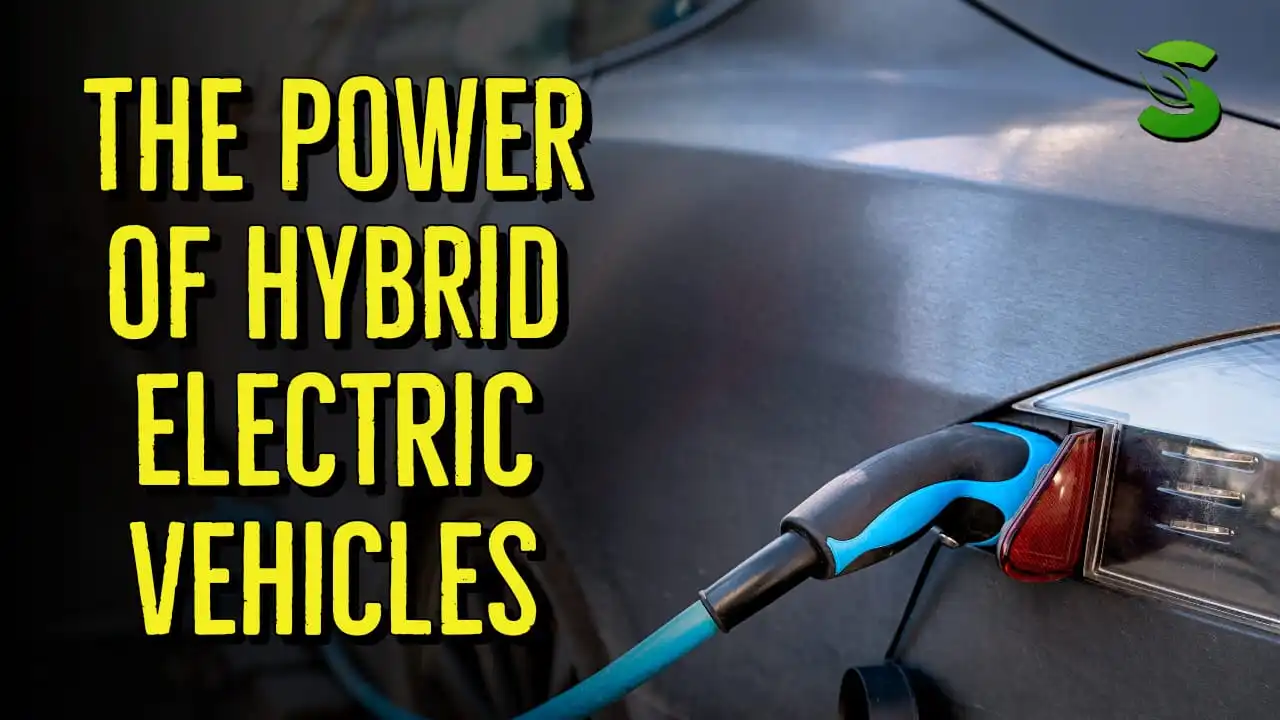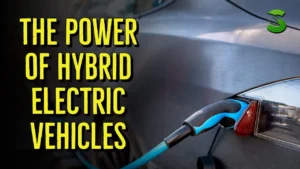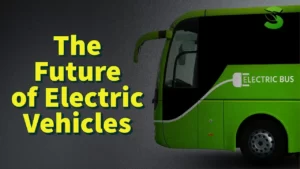In today’s ever-evolving world, the need for sustainable transportation solutions has become paramount. As we strive to mitigate the environmental impact of traditional vehicles, hybrid electric vehicles (HEVs) have emerged as a promising solution. With a combination of internal combustion engines (ICE) and electric motors, HEVs offer substantial benefits ranging from reduced carbon emissions to improved fuel efficiency. In this article, we will delve into the environmental impact, cost-effectiveness, and future prospects of HEVs, exploring how they contribute to a more sustainable future. Additionally, we will explore the latest advancements in HEV technology, including regenerative braking and improved battery efficiency, and highlight their role in transforming the transportation sector.
Environmental Impact of Hybrid Electric Vehicles:

a. Reducing Carbon Emissions:
One of the primary reasons for transitioning to HEVs is their potential to significantly reduce greenhouse gas emissions. By combining the use of both internal combustion engines and electric motors, HEVs drastically improve fuel efficiency. This leads to a reduction in carbon dioxide (CO2) emissions when compared to conventional vehicles. According to studies, HEVs can achieve up to a 35% reduction in CO2 emissions.

b. Decreasing Air Pollution:
Beyond curbing CO2 emissions, HEVs also contribute to a cleaner and healthier environment by cutting down other pollutants traditionally associated with internal combustion engines. Reductions in nitrogen oxides (NOx) and particulate matter (PM) can have far-reaching benefits on air quality, leading to improved respiratory health for individuals within urban areas.

c. Noise Reduction:
HEVs operate significantly quieter than conventional vehicles due to the electric motor’s lower decibel levels. This feature not only enhances the driving experience but also reduces noise pollution in urban areas, creating more peaceful surroundings.
Cost-Effectiveness of Hybrid Electric Vehicles:
a. Fuel Efficiency:
One of the primary advantages of HEVs lies in their superior fuel efficiency. By utilizing electric power in conjunction with an internal combustion engine, HEVs consume less fuel, resulting in lower operational costs. This increased efficiency delivers greater mileage per gallon, translating into substantial savings for owners over the vehicle’s lifetime.
b. Maintenance Cost Savings:
HEVs often require less frequent maintenance compared to conventional vehicles. With regenerative braking and other advanced technologies, the strain on traditional braking systems and other components is reduced, leading to fewer repairs and replacements. Furthermore, the regenerative braking system offers extended brake pad life, translating into additional cost savings for HEV owners.
c. Government Incentives:
Many governments worldwide recognize the importance of transitioning to greener transportation options and offer various incentives to promote HEV adoption. These can include tax credits, rebates, or exemptions from certain fees and tolls. These incentives further enhance the cost-effectiveness of HEVs, making them an attractive choice for environmentally conscious consumers.
Advancements in Hybrid Electric Vehicle Technology:
a. Regenerative Braking:
Regenerative braking is a key feature of HEVs that allows the vehicle to capture and convert kinetic energy during deceleration or braking into electric energy. This energy is then stored in the battery for later use, reducing reliance on the internal combustion engine and improving overall energy efficiency. The addition of regenerative braking technology has marked a significant step toward enhancing HEV performance and sustainability.
b. Improved Battery Efficiency:
Battery technology is vital for the success of HEVs. Over the years, significant advancements have been made to improve energy storage and overall battery efficiency. Cutting-edge lithium-ion batteries with higher energy densities have contributed to longer electric range and increased performance. Moreover, ongoing research and development in battery technologies, such as solid-state batteries, are expected to unlock even greater potential for HEV efficiency and sustainability.
c. Plug-In Hybrid Electric Vehicles (PHEVs):
Building upon the success of HEVs, PHEVs offer increased electric range by allowing the vehicle to be charged externally. This feature enables longer all-electric driving distances and further decreases reliance on the internal combustion engine. PHEVs provide flexibility, as they can run on electricity alone for shorter trips and seamlessly switch to the combustion engine for longer journeys. This technology has gained popularity due to its ability to effectively reduce fuel consumption and emissions.
Role of Hybrid Electric Vehicles in Transitioning to a Greener Transportation Sector:
a. Fostering Sustainable Mobility:
The transportation sector is a major contributor to global carbon emissions. With HEVs, we can reduce these emissions effectively while maintaining the convenience and accessibility of personal transportation. By transitioning to more sustainable vehicles, we can foster a greener and healthier future.
b. Supporting Renewable Energy Integration:
As the world continues to embrace renewable energy sources, Hybrid electric vehicles HEVs play a crucial role in supporting their integration. HEVs can act as mobile energy storage units, utilizing excess renewable energy produced during off-peak hours and feeding it back into the grid or powering homes during emergencies. This two-way interaction between HEVs and renewable energy sources promotes a more resilient and sustainable energy ecosystem.
c. Encouraging Innovation and Collaboration:
The rise of Hybrid electric vehicles HEVs has sparked a wave of innovation and collaboration among automakers, battery manufacturers, and renewable energy sectors. As research and development in HEV technologies accelerate, advancements in battery efficiency, charging infrastructure, and renewable energy integration continue to shape a greener future.
FAQ hybrid electric vehicle
Q: What is a hybrid electric vehicle (HEV)?
A: A hybrid electric vehicle, or HEV, is a type of vehicle that combines both an internal combustion engine (ICE) and an electric motor or motors to improve fuel efficiency and reduce emissions. HEVs use a combination of gasoline/diesel engines and batteries to power the vehicle.
Q: How does a hybrid electric vehicle work?
A: Hybrid electric vehicles employ various technologies to operate. When driving, the vehicle can utilize either the internal combustion engine, the electric motor, or both simultaneously. The electric motor is powered by a battery pack that gets charged through regenerative braking or by the engine generator. The vehicle’s computer system determines the most efficient mode of operation based on driving conditions and demands.
Q: What are the benefits of owning a hybrid electric vehicle?
A: Hybrid electric vehicles HEVs offer several advantages, including:
- Improved fuel economy: The combined power of the internal combustion engine and electric motor results in better mileage and reduced fuel consumption.
- Reduced emissions: By utilizing electric power, HEVs emit lower amounts of greenhouse gases and pollutants compared to traditional vehicles.
- Regenerative braking: HEVs can recover and store energy during braking, which is later used to power the electric motor, enhancing overall efficiency.
- Potential cost savings: With reduced fuel consumption, owners can save money on gasoline/diesel costs in the long run, especially if they drive long distances regularly.
- Environmental benefits: By reducing fuel consumption and emissions, Hybrid electric vehicles contribute to a greener and more sustainable transportation ecosystem.
Q: Do I need to plug in a hybrid electric vehicle?
A: In general, hybrid electric vehicles do not require external charging. The batteries in HEVs are charged through regenerative braking or by the engine generator while the vehicle is in motion. However, some plug-in hybrid electric vehicles (PHEVs) do offer the option to plug into an electrical outlet for charging, allowing for longer electric-only driving ranges.
Q: What is the difference between a hybrid electric vehicle and a plug-in hybrid electric vehicle?
A: The key distinction between a hybrid electric vehicle (HEV) and a plug-in hybrid electric vehicle (PHEV) lies in the battery charging mechanism. While both types of vehicles use a combination of an internal combustion engine and an electric motor, PHEVs have larger battery packs that can be charged by plugging into an external power source, such as an electrical outlet. This charging capability allows PHEVs to operate in electric-only mode for longer distances compared to conventional HEVs.
Q: How does the fuel economy of a hybrid electric vehicle compare to a conventional gasoline/diesel vehicle?
A: Hybrid electric vehicles generally provide better fuel economy compared to conventional gasoline or diesel vehicles. The extent of this improvement varies based on various factors, including the vehicle’s design, driving conditions, and individual driving habits. Typically, HEVs can achieve 20-50% better fuel economy, depending on the specific model and usage patterns.
Q: Are hybrid electric vehicles more expensive to buy and maintain?
A: Initially, hybrid electric vehicles can have a higher purchase price compared to their conventional counterparts due to the additional technology involved (such as the electric motor and battery system). However, the cost difference has been decreasing over the years, and some incentives and tax credits may be available in some countries to offset the upfront cost. As for maintenance, HEVs are generally similar to conventional vehicles and do not incur significantly higher costs.
Q: Can a hybrid electric vehicle be serviced at any car repair shop?
A: Yes, hybrid electric vehicles can be serviced at most car repair shops. However, it is recommended to seek out mechanics who are trained and experienced in handling hybrid vehicle systems and diagnostics. Some manufacturers also have authorized service centers that specialize in hybrid vehicle maintenance and repair.
Q: What are some popular hybrid electric vehicle models available in the market?
A: Several popular hybrid electric vehicle models include the Toyota Prius, Honda Insight, Ford Fusion Hybrid, Toyota Camry Hybrid, Hyundai Ioniq Hybrid, and Chevrolet Volt. However, the availability of specific models and the popularity of certain brands may vary depending on your location.
Conclusion:
Hybrid electric vehicles (HEVs) provide an exceptional opportunity to address the environmental challenges associated with traditional vehicles. With reduced carbon emissions, improved fuel efficiency, and lower maintenance costs, HEVs offer a compelling case for a sustainable future. Furthermore, advancements in HEV technology, such as regenerative braking and improved battery efficiency, are driving the industry toward increased performance and sustainability. HEVs contribute to a greener transportation sector by reducing emissions, supporting renewable energy integration, and fostering innovation and collaboration. Embracing the potential of HEVs is a crucial step toward achieving a sustainable future and leaving a positive legacy for generations to come.
ALSO READ | The Future of Electric Vehicles: EVs Paving the Road to a Sustainable Future







